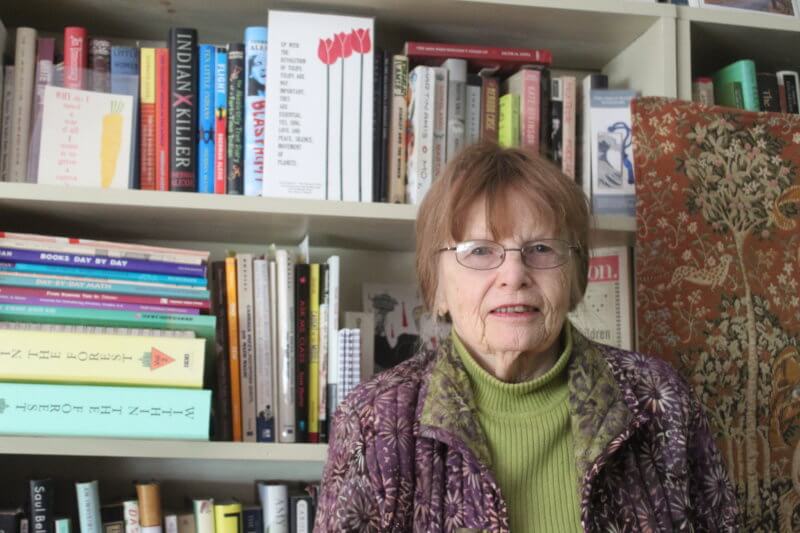Susan Ohanian: A passionate spokesperson for teachers
Susan Ohanian has a lot to say about teaching. In fact, she’s so passionate about the topic that she gave up a teaching career in favor of one writing about teaching.
She has authored over 20 books and more than 300 magazine and newspaper articles about the classroom.
“I started out working for an ad agency in New York City,” Ohanian said. “I thought it was a disgusting job, so I went to night school for education courses. I saw an ad in the New York Times where they were issuing emergency certificates for high school English teachers, and I applied.”
Ohanian only taught for a year in the city before getting married and moving with her husband to Troy, NY, where she taught for 15 years.
“I taught all ages, but mostly seventh grade and some third grade,” she said.
Ohanian wasn’t impressed with a lot of the classroom teaching she saw and began to write about it. Initially she was published in trade journals like the National Council of Teachers of English and the Phi Beta Kappan.
“I wanted to reach a larger audience and I got lucky,” she said. “Teachers weren’t really writing and when they did, the articles were stiff and academic, while I wrote in a chatty style.”
Ohanian wrote for USA Today, but they limited her to 800 words, and other magazines, including the Nation, Washington Monthly and the Atlantic all had word limits.
“I had bigger stories to tell so books seemed like a good idea,” Ohanian said.
Her first book on education was published in 1991 and her last, a critique of No Child Left Behind, came out in 2007. Since then, she has written two books critiquing Donald Trump.

Ohanian’s husband taught physics at Rensselaer Polytechnic Institute in Troy, NY, but soon he began writing books, as well. The couple kept a sailboat in Charlotte and came up every weekend.
“We’d sail no matter what the weather was because we’d made the drive,” she said, “and that led to going out in 35 mph winds.”
In 1994 the two decided to move to Charlotte to be closer to the lake.
Ohanian became a member of the Vermont Society for the Study of Education.
“We looked at what the state had done in terms of education, and we liked what we saw,” she said. “They had something called Design for Education, which was devised after administrators went around the state interviewing teachers. It was all about trusting teachers, children and parents but, to get federal dollars, the state had to sign on to No Child Left Behind.”
Ohanian noted that the original Design for Education was only 25 pages, including student artwork, but the revised plan ballooned so that almost 200 pages were devoted just to K-3 reading curriculum.
Ohanian said that when Vermont originated Design for Education, the state received applications from teachers across the country because they were impressed by the concept.
“There was nothing revolutionary about the program,” she said. “It emphasized local control and flexibility, and called for learning experiences geared to individual needs rather than group norms. The problem is that education becomes a football for political agendas.”
In 2007, Ohanian wrote a booklet about federal interference in the program called “A Roadblock in Vermont’s Design for Education.”
“We put a copy in every legislator’s mailbox,” she said, “and got only one reply.”
Of all her books, Ohanian is probably proudest of What Happened to Recess and Why Are Our Children Struggling in Kindergarten? which was published in 2002.
“There is a whole lot of pressure for kids to have measurable skills in kindergarten,” Ohanian said. “They should be learning how to play together and to negotiate with one another.”
Ohanian pointed to studies showing that even when children have extensive skill training in kindergarten, by the time they get to third grade they are back on the same level as other kids.
Ohanian missed teaching when she switched to fulltime writing, but for several years she was a mentor at Charlotte Central School.
“I loved what I saw there,” she said. “I thought they were doing a great job.”
Ohanian is still involved in education policy as a fellow at the National Education Policy Center at the University of Colorado. Locally, she was involved in the installation of a Little Free Library for kids at the Grange.
Ohanian believes strongly in the power of play, sustained silent reading and the elimination of duplicitous language. She is fairly optimistic about the fate of her former profession.
“I think teachers are pretty tough,” she said. “I think teachers and librarians have the right ideas.”

